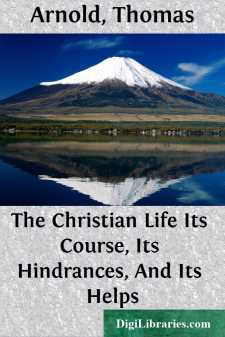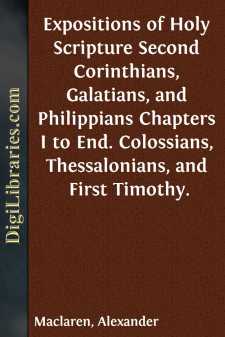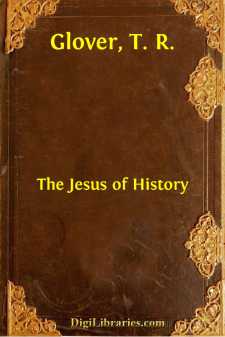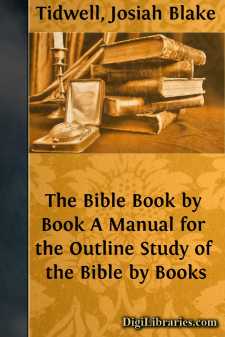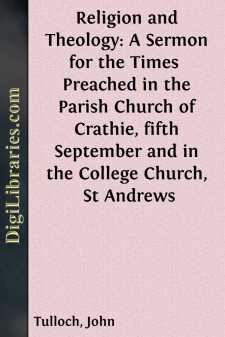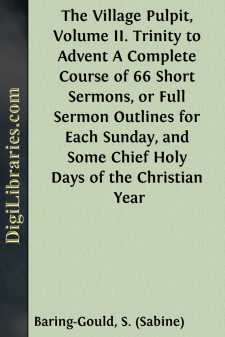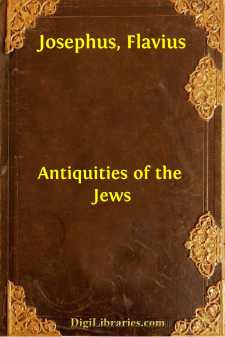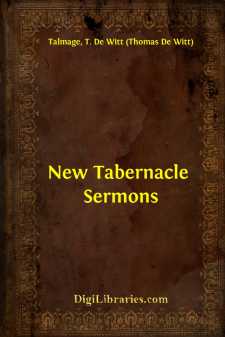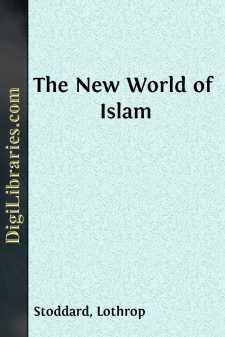Categories
- Antiques & Collectibles 13
- Architecture 36
- Art 48
- Bibles 22
- Biography & Autobiography 813
- Body, Mind & Spirit 142
- Business & Economics 28
- Children's Books 17
- Children's Fiction 14
- Computers 4
- Cooking 94
- Crafts & Hobbies 4
- Drama 346
- Education 46
- Family & Relationships 57
- Fiction 11829
- Games 19
- Gardening 17
- Health & Fitness 34
- History 1377
- House & Home 1
- Humor 147
- Juvenile Fiction 1873
- Juvenile Nonfiction 202
- Language Arts & Disciplines 88
- Law 16
- Literary Collections 686
- Literary Criticism 179
- Mathematics 13
- Medical 41
- Music 40
- Nature 179
- Non-Classifiable 1768
- Performing Arts 7
- Periodicals 1453
- Philosophy 64
- Photography 2
- Poetry 896
- Political Science 203
- Psychology 42
- Reference 154
- Religion 513
- Science 126
- Self-Help 84
- Social Science 81
- Sports & Recreation 34
- Study Aids 3
- Technology & Engineering 59
- Transportation 23
- Travel 463
- True Crime 29
The Christian Life Its Course, Its Hindrances, And Its Helps
by: Thomas Arnold
Categories:
Description:
Excerpt
INTRODUCTION.
The contents of this volume will be found, I hope, to be in agreement with its title.
Amongst the helps of Christian life, the highest place is due to the Christian church and its ordinances. I have been greatly misunderstood with respect to my estimate of the Christian church, as distinguished from the Christian religion. I agree so far with those, from whom I in other things most widely differ, that I hold the revival of the church of Christ in its full perfection, to be the one great end to which all our efforts should be directed. This is with me no new belief, but one which I have entertained for many years. It was impressed most strongly upon me, as it appears to have been upon others, by the remarkable state of affairs and of opinions which we witnessed in this country about nine or ten years ago; and everything since that time has confirmed it in my mind more and more.
Others, according to their own statement, received the same impression from the phenomena of the same period. But the movement had begun earlier; nor should I object to call it, as they do, a movement towards "something deeper and truer than satisfied the last century." It began, I suppose, in the last ten years of the last century, and has ever since been working onwards, though for a long time slowly and secretly, and with no distinctly marked direction. But still, in philosophy and general literature, there have been sufficient proofs that the pendulum, which for nearly two hundred years had been swinging one way, was now beginning to swing back again; and as its last oscillation brought it far from the true centre, so it may be, that its present impulse may be no less in excess, and thus may bring on again, in after ages, another corresponding reaction.
See Mr. Newman's Letter to Dr. Jelf, p. 27.Now if it be asked what, setting aside the metaphor, are the two points between which mankind has been thus moving to and fro; and what are the tendencies in us which, thus alternately predominating, give so different a character to different periods of the human history; the answer is not easy to be given summarily, for the generalisation which it requires is almost beyond the compass of the human mind. Several phenomena appear in each period, and it would be easy to give any one of these as marking its tendency: as, for instance, we might describe one period as having a tendency to despotism, and another to licentiousness: but the true answer lies deeper, and can be only given by discovering that common element in human nature which, in religion, in politics, in philosophy, and in literature, being modified by the subject-matter of each, assumes in each a different form, so that its own proper nature is no longer to be recognized. Again, it would be an error to suppose that either of the two tendencies which so affect the course of human affairs were to be called simply bad or good. Each has its good and evil nicely intermingled; and taking the highest good of each, it would be difficult to say which was the more excellent;--taking the last corruption of each, we could not determine which, was the more hateful. For so far as we can trace back the manifold streams, flowing some from the eastern mountains, and some from the western, to the highest springs from which they rise, we find on the one side the ideas of truth and justice, on the other those of beauty and love;--things so exalted, and so inseparably united in the divine perfections, that to set either two above the other were presumptuous and profane. Yet these most divine things separated from each other, and defiled in their passage through this lower world, do each assume a form in human nature of very great evil: the exclusive and corrupted love of truth and justice becomes in man selfish atheism; the exclusive and corrupted worship of beauty and love becomes in man a bloody and a lying idolatry.
Such would be the general theory of the two great currents in which human affairs may be said to have been successively drifting. But real history, even the history of all mankind, and much more that of any particular age or country, presents a picture far more complicated....


